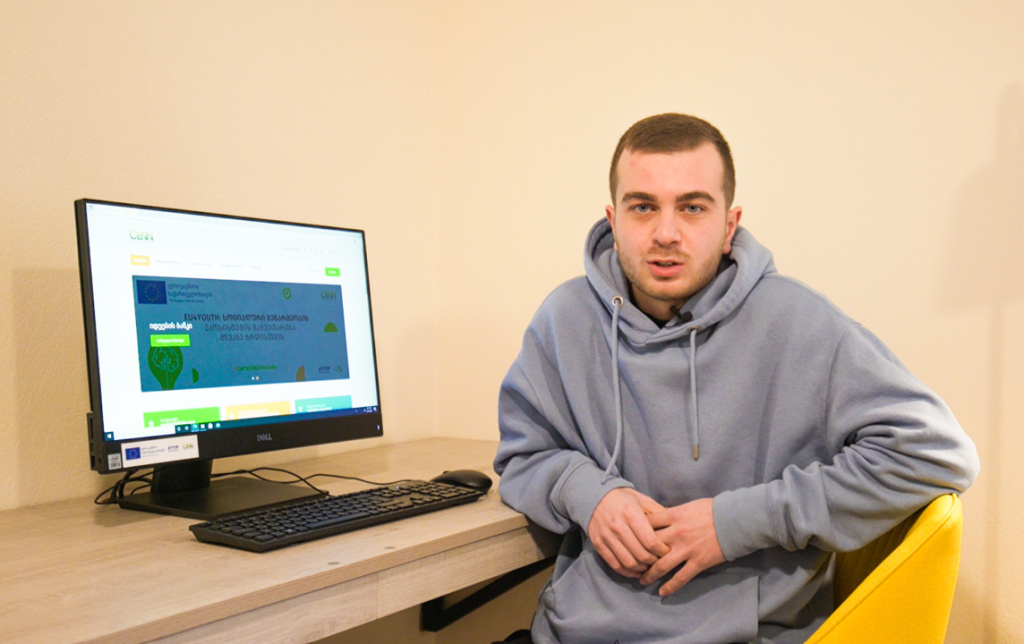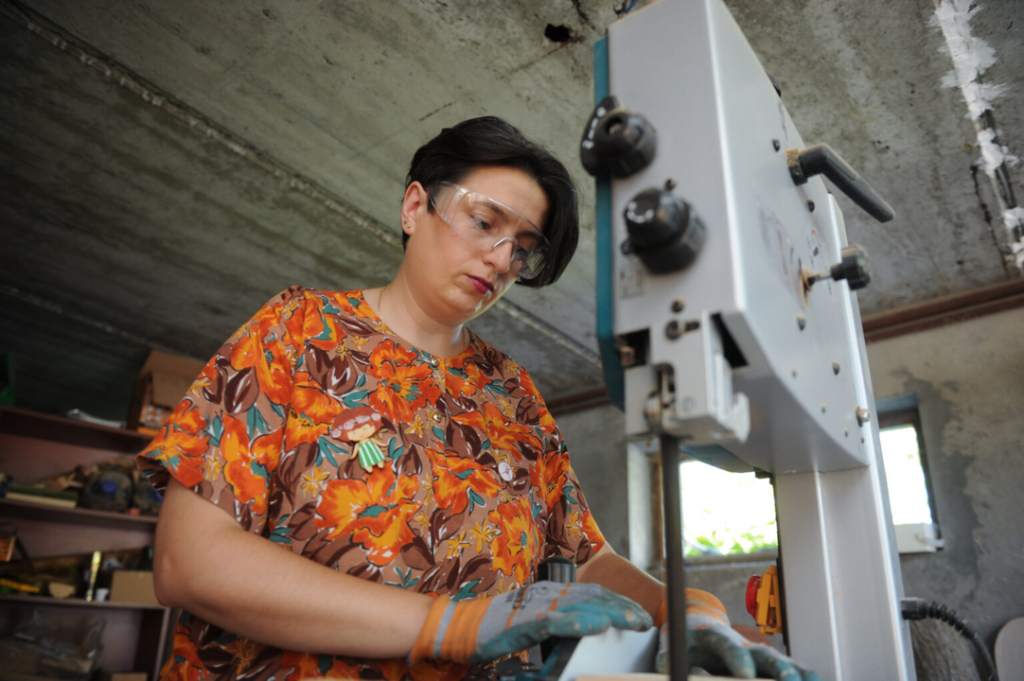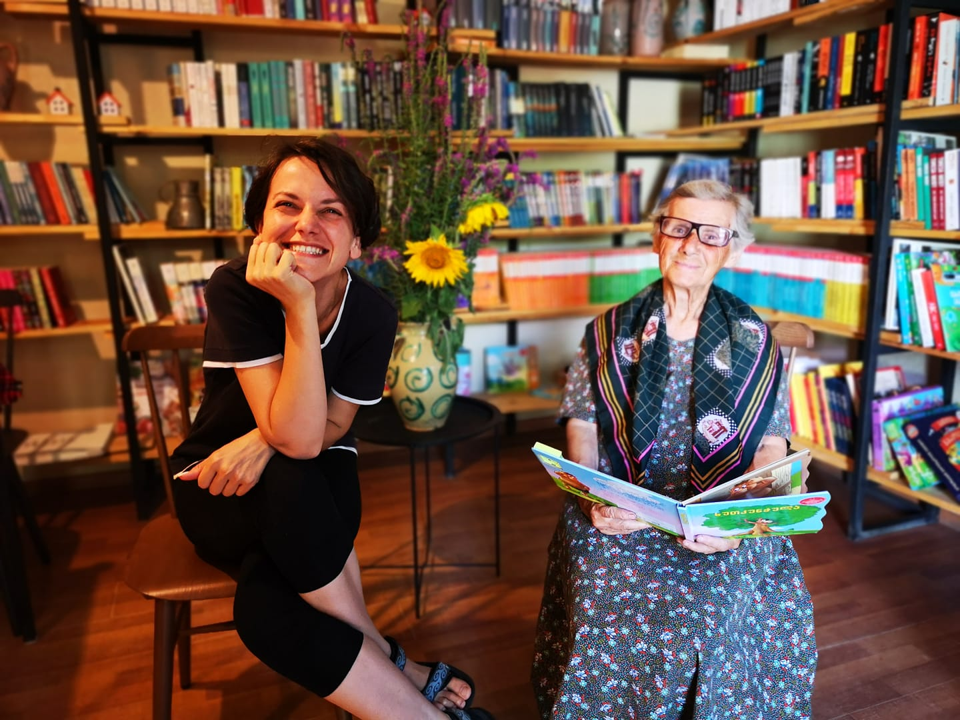
Empowerment and skills: thousands of young Georgians benefit as EU4Youth marks five years of impact
Young people across Georgia are increasingly taking up active roles in their communities and developing new skills that match the demands of the labour market. These are just some of the highlights as the EU4Youth programme closes its latest five-year cycle, and draws conclusions from the impact data collected over the period of its activity in Georgia.
As recorded in the programme’s yearly reports, EU4Youth actions in Georgia covered direct training and mentoring, matchmaking between employees and employers, grants to new businesses, policy to create new jobs and improve skills, tailoring education to the market, and local initiatives to support the most vulnerable.
Despite the effects of the Russian invasion of Ukraine and the ensuing political instability in Georgia and the broader Eastern Partnership (EaP) region, as well as the COVID-19 pandemic, the evidence shows that EU4Youth has been able to make a positive impact on young Georgians’ education and employability, entrepreneurship and employment, and their engagement and empowerment.

Education and employability
With the support of EU4Youth, nearly 10,500 young Georgians gained new skills matching the demands of the job market. More than 850 job seekers, of whom almost three quarters were women and nearly 40% were disadvantaged youth, also completed a skills certification or validation process to improve their chances of finding employment.
Innovation Knowledge Hubs launched by EU4Youth in three different rural municipalities of Georgia – Gori, Ninotsminda and Akhmeta – have provided many educational opportunities, playing an important role in young people’s development.
Giorgi Khokhobashvili has been an active participant in his local hub in Akhmeta. His plan is to use the experience and knowledge he has gained through this EU4Youth project to help other young people participate in similar programmes. “The existence of these Hubs and the support they provide is a source of motivation for us to do our share in developing our region and to do our best to improve the environment for young people,” says Giorgi.
Nearly 550 young people in Georgia have also benefited from mentorships in areas such as career orientation or developing a business. To enable these collaborations, EU4Youth engaged 165 mentors from different fields. Tsitsi Shengelia, a young entrepreneur from Zugdidi who founded a carpentry business, points out the importance of these opportunities for young people: “When I received financing, I had the idea and the project, but I lacked entrepreneurial experience and skills. Today, I have a specific direction, goal and environment to develop my own business even further.”

Entrepreneurship and employment
To boost entrepreneurship in Georgia, the EU4Youth programme provided financial support to 30 young people to help them start a business. More than two-thirds of these entrepreneurs were women.
Among them was Nana Bagalishvili, who opened the Knowledge Café in the town of Tsnori. There were no public spaces where people could meet, so Nana and 25 of her friends got together to organise street events. With the help of the EU4Youth Social Entrepreneurship in Armenia and Georgia (SEAG) project, she received the practical knowledge and skills, along with a financial grant to expand her project. Nana says that she and her friends want to keep “sharing our knowledge and experiences, and to continue to provide opportunities for people in their own region and to create opportunities for their self-realisation.” Thanks to the funding received through the EU4Youth programme, the Knowledge Café can now cater for more than 60 people and is on its way to becoming a financially sustainable business, planning to expand in the whole region of Kakheti.

Engagement and empowerment
The EU4Youth Alumni Network was specifically designed to offer a space for already active young Georgians to grow as local activists, supporting the most disadvantaged young people in their communities.
During the 2020-2022 cycles, 24 alumni rolled out their own local initiatives, together involving more than 310 beneficiaries. ‘Girl Power’ is one of these initiatives, started by Nitsa Tsitsagi and Nika Kvrivishvili to offer women between the ages of 18 and 29 in the Shida Kartli region in Georgia much needed skills, such as project management, leadership, problem solving and decision making. Equipped with these skills, beneficiaries were able to become more active in their communities. “I have learned that every step we make is worth it,” says Nitsa. “The progress my group made was worth all of the work and effort. I am not going to stop. I believe together we can engage youth in the community and make our society better.”

Youth policy landscape
The State Youth Strategy 2023-2026 and the Action Plan for 2023 were adopted by the Georgian government in December 2022. Through six strategic goals, the document addresses the topics of youth development, enhancement of the health and well-being of young people, economic empowerment, youth participation in public and democratic processes, and improvement of the youth policy management system.
Over the past five years, the different EU4Youth projects have been successful in bringing youth closer to the political debate. Projects have focused on the development of soft skills for young people to be more confident and critical, supporting structures and youth groups at the national level. The success stories are there, but there is space for further development for youth policy and youth interventions in Georgia, with a focus on:
- Advancing initiatives for meaningful youth engagement in policy making;
- Investing in sustainable and dedicated safe spaces that allow young people to access information and services, as well as actively engage and participate;
- Strengthening professional psychosocial support opportunities for young people, to help them better cope with the stress caused by instability and insecurity in the region while becoming more vocal and resilient at the same time.
Yearly data and recommendations
With the 2022 Achievements Report closing the five-year monitoring and evaluation cycle, the EU4Youth programme offers four comprehensive reports for policymakers, civil society leaders and educators designing and implementing youth empowerment initiatives and policy measures in Georgia. These reports provide a holistic picture of interventions conducted so far through the programme along with their impact. Each report concludes with observations of efficacy and youth policy recommendations, drawing from the year-specific conclusions.